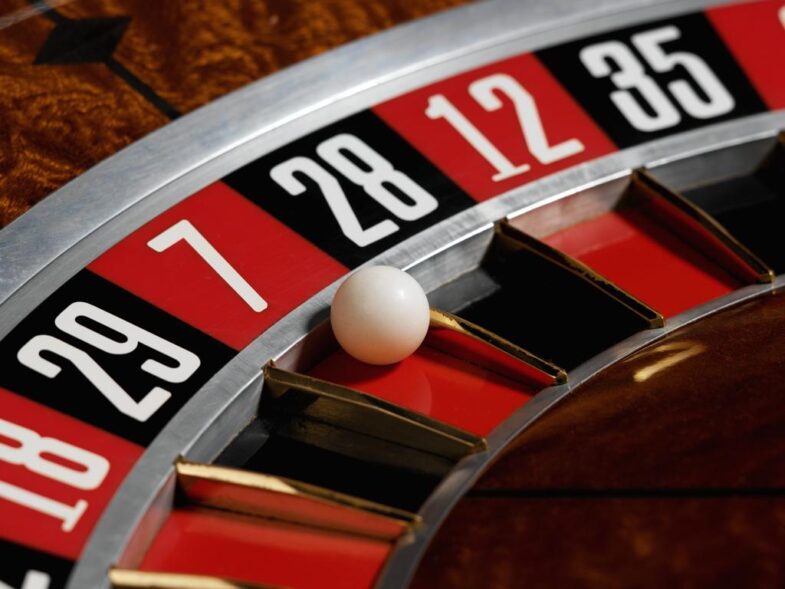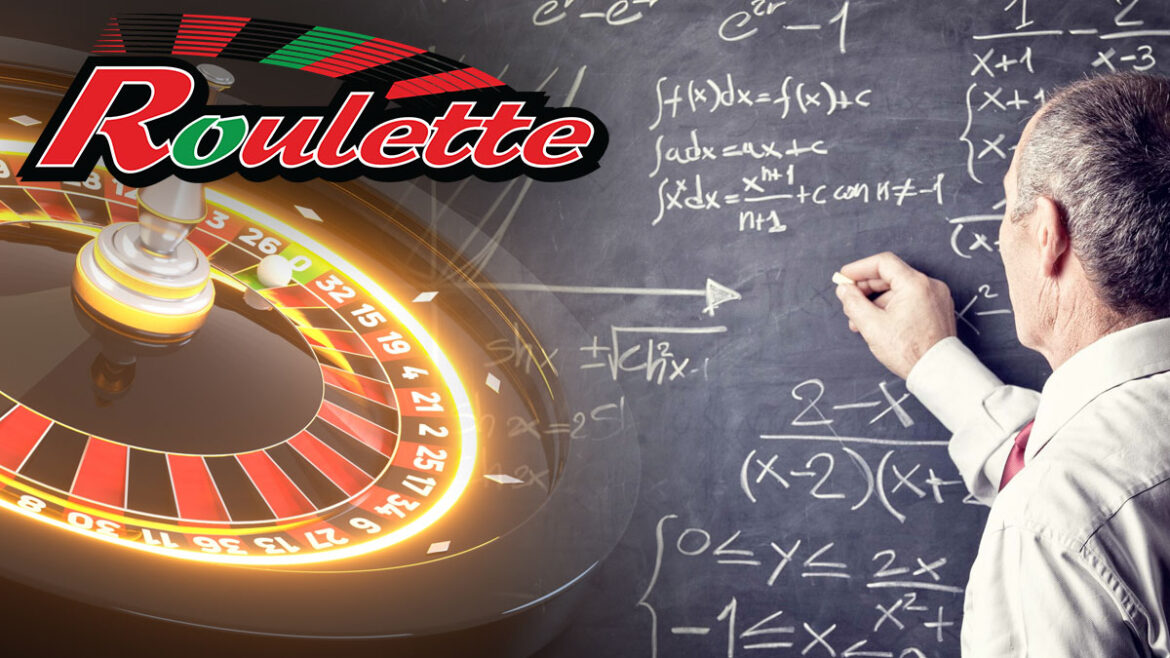https://www.quora.com/Can-the-Fibonacci-and-mortgage-sequence-of-numbers-work-well-in-roulette-betting
Ponder this. When you walk up to the roulette table, could you potentially increase your odds of winning by wielding the power of mathematics? This thought has intrigued players for generations. By delving deep into the realms of probability and expected value, we can unveil the role of mathematics in roulette. In this mathematical journey, we will reveal intriguing insights about this well-loved casino game.
Basics of Probability
To start, let’s lay a foundation by exploring the fundamental concepts of probability. Imagine you’re tossing a coin. The outcome can either be heads or tails, each with an equal chance. This straightforward concept is at the heart of understanding roulette probability as well. The spinning wheel, and the bouncing ball – all contribute to the generation of a random outcome.
Turning our gaze to the roulette wheel, the numbers appear haphazardly. This randomness has been intentionally designed to promote fairness. When the wheel spins, each pocket, be it red, black, or green, has the same likelihood of becoming the ball’s final resting place. This is also the case when you play roulette online, which makes it all the more important for you to understand. The probability here, as in the coin toss, is independent of each spin. An important takeaway? The ball has no memory.
Understanding the Wheel and Bets

Source: pinterest.com
Next, let’s dissect the roulette wheel and the various wagers one can place. It’s a vibrant mix of numbers and colors, filled with countless betting opportunities. American roulette wheels contain 38 pockets: numbers 1-36 (equally divided between red and black), plus two green pockets numbered 0 and 00. European wheels, on the other hand, only have a single green pocket, numbered 0.
Betting on roulette is not a one-size-fits-all affair. You can place an array of bets, each with its own set of odds. “Inside bets” are wagers placed on specific numbers or groups of numbers within the inner section of the roulette layout. These bets offer higher payouts but lower odds of winning. “Outside bets,” on the other hand, are wagers placed on larger groupings of numbers, colors, or other characteristics. These bets have lower payouts but better odds of winning.
Calculation of Probability
Now that we understand the roulette wheel and its betting options, we can dive into how probability is calculated in roulette. The method is relatively simple; the probability of a specific outcome is the number of ways that outcome can occur divided by the total number of possible outcomes. For instance, in European Roulette, if you place a straight-up bet (betting on a single number), the probability is 1 (one way to win) out of 37 (total possible outcomes).
Let’s consider another example. If you decide to place an ‘even’ bet (betting that the ball will land on an even number), you’d have 18 ways to win, out of a total of 37 possible outcomes. Hence, the probability would be 18/37. But remember, the 0 is neither even nor odd, so it’s not included in your winning numbers.
Expected Value

Source: pinterest.com
Beyond probabilities, a more subtle concept lurks – the expected value. The expected value is essentially the long-term average value of a random variable. In the case of roulette, it gives an average outcome of a bet if it were to be repeated many times. The expected value is calculated by multiplying each possible outcome by the probability of that outcome, then summing these figures.
How does it work in roulette? For example, consider a straight-up bet in European roulette. The payout for winning is 35 to 1. But the probability of winning is 1 in 37. The expected value is therefore (35 x 1/37) – (1 x 36/37) = -0.027. This value is negative, indicating that on average, for every unit bet, a player is expected to lose 0.027 units per spin.
Analyzing Different Bet Types
Having the knowledge of expected value helps players evaluate the potential return of different bet types. Consider a high-risk inside bet, such as a straight-up bet. Despite the enticing payout of 35 to 1, the likelihood of winning is small due to the high odds against success. Therefore, the expected value is significantly negative.
Let’s compare this to an outside bet, like betting on black. The odds of winning are nearly even, making it a lower-risk bet. However, the payout is smaller at 1 to 1. But here’s the kicker – despite the seemingly safer bet, the expected value remains negative like in 5 euro deposit casinos.
Applying Mathematical Strategies

Source: pinterest.com
So, can we employ mathematical strategies to enhance our roulette game? Undoubtedly, understanding probability and expected value provide a more informed basis for making decisions. It’s not about predicting the outcome of a single spin; that remains a realm of chance.
Using strategies like the Martingale or Fibonacci betting systems can make the game more engaging. These systems guide players on how to adjust their bets after a win or a loss. They don’t guarantee success, but they can add a dimension of strategy to a game otherwise governed by chance.
The Role of Mathematics in Making Informed Decisions
The role of mathematics in roulette extends beyond mere calculations. It’s about making informed decisions. When you understand the probabilities and expected values associated with different bets, you’re better equipped to decide what risks are worth taking. Just like savvy investor uses data to guide their decisions, a well-informed roulette player can use mathematical insights to make calculated bets.
However, the house always maintains a mathematical advantage, regardless of your betting strategy. The expected negative value implies that in the long run, the house always wins. It’s crucial to remember that roulette is a game of chance, and these mathematical strategies and insights are tools to enhance understanding and enjoyment, not to guarantee a win.
Limitations and Risks of Mathematical Approaches

Source: pinterest.com
Of course, any discussion of mathematics in roulette wouldn’t be complete without acknowledging its limitations. Although the laws of probability are mathematical truths, they apply to large numbers of events. In the short term – say, over the course of a single evening at the casino – anything can happen. The roulette ball does not obey the laws of probability; it lands where it lands, regardless of mathematical expectations.
The primary risk of mathematical approaches to roulette, or any form of gambling, is that they can give a false sense of control. While understanding the math can make the game more interesting and perhaps more strategic, it’s important to remember that the house always has the upper hand. No betting system, no matter how mathematically sound, can overcome the inherent house advantage.
Parting Thoughts
The allure of roulette lies in its unpredictable nature. Mathematics, with its explorations into probability and expected value, can indeed add depth to your understanding of the game. It allows you to make informed decisions and possibly improve your game strategy. Yet, the spinning wheel, the bouncing ball, and the anticipation – the elements that make roulette a captivating game are all rooted in the realms of chance, far beyond the reach of any mathematical formula.
